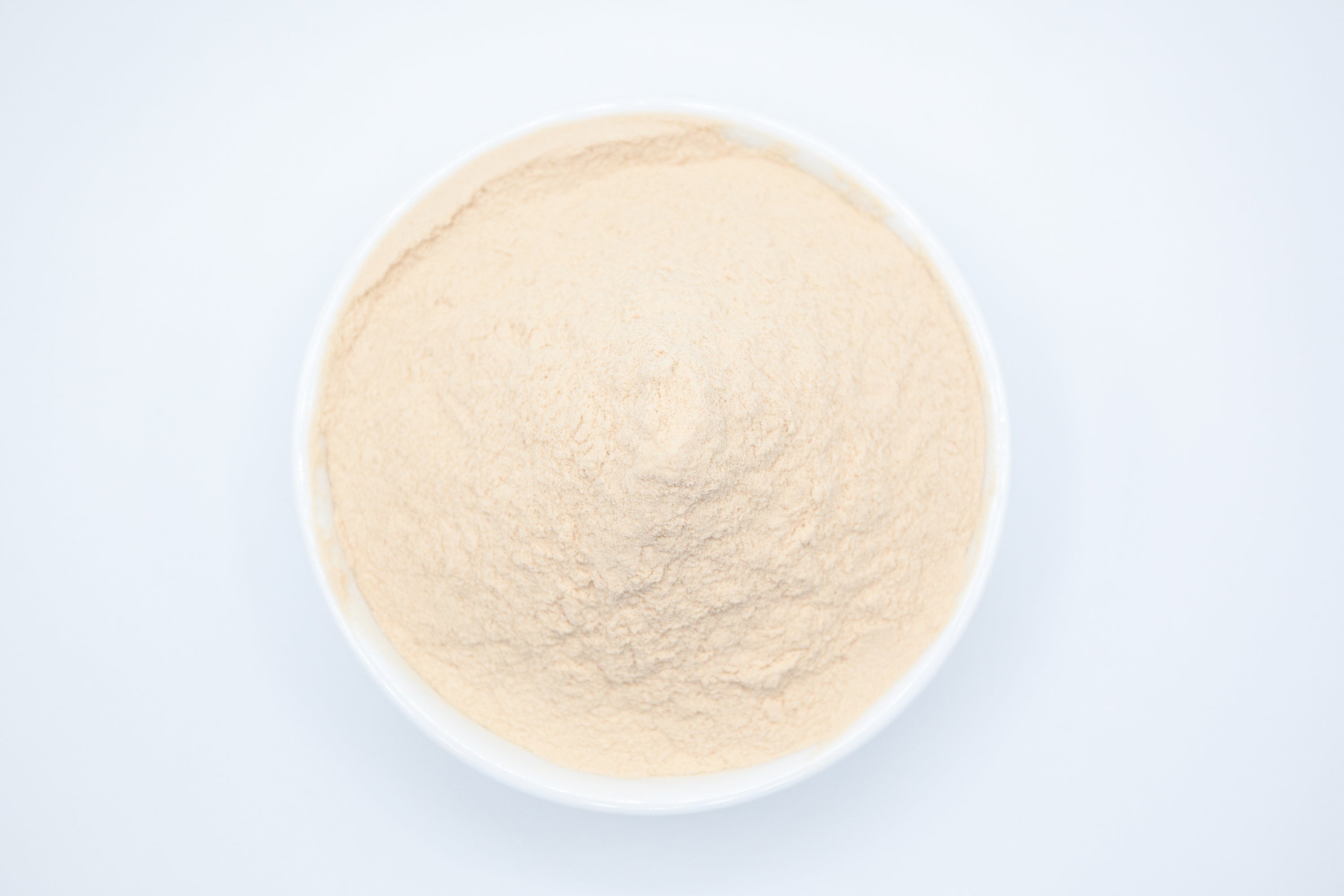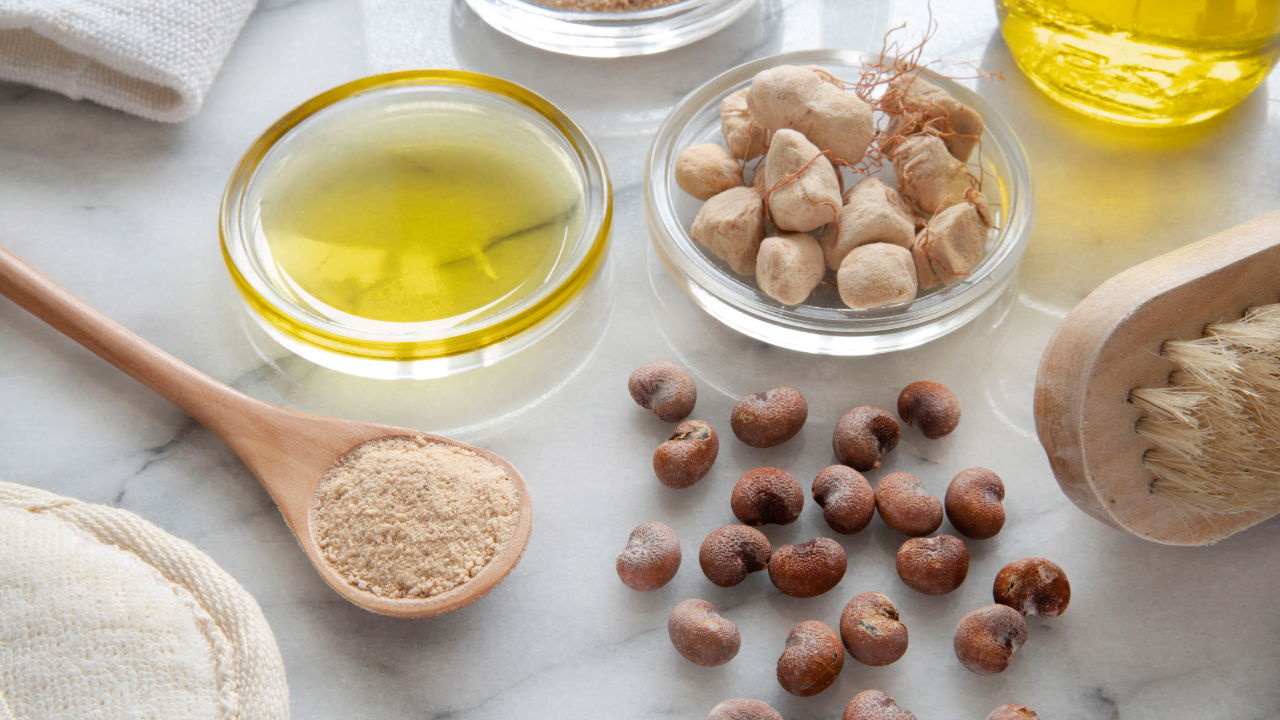Introduction
Baobab powder is a relatively new superfood gaining popularity in health and wellness due to its impressive nutritional profile and potential health benefits. Derived from the fruit of the iconic baobab tree, native to Africa, this powder has a unique tangy flavor, making it a versatile addition to various recipes.

However, not all baobab powders are created equal. It's essential to use high-quality organic baobab powder to ensure maximum health benefits without unwanted additives or contaminants. In this article, we'll explore what baobab powder is, what it is used for, and the benefits it offers. We'll also answer common questions such as whether baobab has side effects, what it tastes like, and whether it is FDA approved. By the end of this article, you will have a good understanding of baobab powder and its potential role in a healthy lifestyle.
What is Baobab Powder?
Baobab powder is a type of superfood made from the fruit of the baobab tree, which is native to Africa. The fruit is dried and ground into a fine powder with a tangy, slightly sweet flavor. Baobab powder has been used in African traditional medicine for centuries, and it is now gaining popularity in the Western world due to its impressive nutritional profile.
Baobab powder is rich in various vitamins, minerals, and antioxidants. It is an excellent source of vitamin C, essential for immune system function and skin health. Baobab powder also contains high potassium, magnesium, and calcium levels, which are needed for maintaining strong bones and supporting heart health. Additionally, baobab powder is a good source of dietary fiber, which can aid digestion and help regulate blood sugar levels.
Compared to other gut health supplements like psyllium fiber, digestive enzyme supplements, and fiber supplements, baobab powder stands out due to its high vitamin and mineral content. However, while psyllium fiber and other fiber supplements can help to regulate bowel movements and support digestive health, they don't provide the same level of nutrients as baobab powder. Similarly, while digestive enzyme supplements can aid digestion, they don't offer the same nutritional benefits as baobab powder.
Baobab powder is a highly nutritious and versatile superfood that can be used in various ways to support overall health and well-being.
Regenerate response
What is Baobab Used for?
Baobab powder has a variety of potential uses and can be incorporated into your daily routine in many ways. One of the most common uses for baobab powder is as a dietary supplement, as it is a rich source of vitamins, minerals, and antioxidants. It can be added to smoothies, juices, or other beverages or sprinkled on top of food as a nutritional boost.

Like other supplements like glucosamine, baobab powder can also support joint health and reduce inflammation. In addition, the high levels of vitamin C in baobab powder can help to support the production of collagen, which is essential for maintaining healthy joints and connective tissues.
Another potential use for baobab powder is as a natural pre-workout drink. The powder contains high levels of potassium, magnesium, and calcium; essential electrolytes lost through sweat during exercise—drinking a beverage containing baobab powder before a workout can help prevent dehydration and provide sustained energy.

Baobab powder stands out due to its high vitamin and mineral content compared to other supplements like magnesium and electrolyte powders. While magnesium supplements can aid muscle and nerve function, they don't provide the same nutrients as baobab powder. Similarly, while electrolyte powders can help to prevent dehydration during exercise, they don't offer the same nutritional benefits as baobab powder.
Overall, baobab powder is a versatile and nutrient-rich superfood that can be used in various ways to support overall health and well-being. So whether you're looking to boost your daily nutrient intake, support joint health, or enhance your workouts, baobab powder is an excellent choice.
Benefits of baobab powder
Baobab powder offers many potential benefits due to its rich nutritional profile. Here are some of the top benefits of baobab powder:
- Promotes gut health: Baobab powder is an excellent dietary fiber source that supports healthy digestion and prevents constipation. The powder also contains digestive enzymes that help break down food and reduce bloating and gas.
- Boosts immune system: The high levels of vitamin C in baobab powder can help to boost the immune system and protect against infections and illnesses. Vitamin C is also crucial for promoting healthy skin, teeth, and gums.
- Supports skin health: Baobab powder is rich in antioxidants, which can help to protect the skin against damage from free radicals and reduce the signs of aging. The powder also contains vitamin E, vital for maintaining healthy skin.
- May aid in weight loss: Some studies have suggested that baobab powder may help with weight loss by reducing appetite and promoting feelings of fullness. In addition, the high fiber content of baobab powder can also help to regulate blood sugar levels, which is vital for maintaining a healthy weight.
- May help with hormonal balance: Baobab powder is a good source of vitamin B6, vital for regulating hormone levels in the body. Some studies have suggested that baobab powder may help to balance hormones and reduce symptoms of PMS and menopause.
Does baobab have side effects?
While baobab powder is generally safe for consumption, it's essential to be aware of potential side effects. Here are some of the possible side effects of baobab powder:
- Upset stomach: Consuming too much baobab powder may cause an upset stomach, bloating, or gas.
- Allergic reactions: Some individuals may be allergic to baobab fruit, which could result in an allergic reaction when consuming baobab powder.
- Interference with medication: Baobab powder may interfere with the absorption of certain medications, so it's important to talk to your healthcare provider before taking baobab powder if you're on medication.
When using baobab powder safely, following the recommended dosage and gradually increasing your intake over time is essential. It's also a good idea to start with a small amount and gradually increase your consumption as your body gets used to it. Purchase organic baobab powder from a reputable source to reduce the risk of contamination. If you experience negative side effects, stop using baobab powder and consult a healthcare provider.
What Does Baobab Powder Taste Like?
Baobab powder has a unique and pleasant taste, often tangy or citrusy. Some people may detect a slightly sweet flavor, while others may find it tart. The texture of baobab powder is fine and powdery, similar to other dietary supplements like psyllium husk.

Compared to other supplements like vitamin B6 supplements, baobab powder has a more distinct taste and flavor. While vitamin B6 supplements may taste slightly bitter or metallic, baobab powder has a more pleasant and fruity taste.
When incorporating baobab powder into your diet, it's essential to consider the taste and texture and choose a recipe or product that complements the powder's flavor. For example, some people enjoy adding baobab powder to smoothies or baked goods, while others may prefer to mix it with water or juice for a quick and easy dose of nutrition.
Is Baobab FDA approved?
Baobab powder is classified as a dietary supplement and is regulated by the US Food and Drug Administration (FDA) under the Dietary Supplement Health and Education Act (DSHEA) of 1994. The DSHEA requires that manufacturers of dietary supplements are responsible for ensuring the safety of their products and that any claims made about their products are truthful and not misleading.
The FDA does not require pre-market approval of dietary supplements, including baobab powder, before retailers can sell them to consumers. However, the FDA can act against manufacturers who sell unsafe products or make false or misleading claims.
As with any dietary supplement, it's essential to choose a high-quality baobab powder from a reputable manufacturer and follow the recommended dosage. It's also a good idea to talk to your healthcare provider before starting any new dietary supplement regimen, especially if you're on medication or have a pre-existing medical condition.
Where to Find Baobab Powder?
Baobab powder is becoming increasingly popular as a dietary supplement, and it's now widely available in health food stores and online retailers. When shopping for baobab powder, looking for a high-quality product sourced from reputable manufacturers and certified organic is essential.
One great place to find high-quality organic baobab powder is Merin Kind. Merin Kind sources its baobab powder from women-owned producers in South Africa, ensuring a sustainable and fair-trade supply chain.
Baobab fruit, from which the powder is made, is native to Africa, but it's now also grown in other parts of the world, such as Australia and the United States. If you want fresh baobab fruit, you can find it in specialty grocery stores or online retailers.
When using baobab powder, following the recommended dosage and using it as part of a healthy and balanced diet is essential. As with any dietary supplement, it's also a good idea to talk to your healthcare provider before starting a new supplement regimen.
Conclusion
In conclusion, baobab powder is a versatile and nutrient-dense dietary supplement that offers a wide range of potential health benefits. Its unique blend of vitamins, minerals, fiber, and antioxidants makes it an excellent addition to a healthy diet.
Baobab powder can be used in various ways, from adding it to smoothies and baked goods to using it as a pre-workout drink or electrolyte powder. When shopping for baobab powder, choosing a high-quality organic product from a reputable supplier, such as Merin Kind, is essential.
As with any dietary supplement, using baobab powder responsibly and as part of a balanced and healthy diet is crucial. If you want to try baobab powder, talk to your healthcare provider to determine if it's right. Baobab powder is worth considering as part of a healthy lifestyle with its potential benefits for gut health, immune function, skin health, and hormonal balance.



